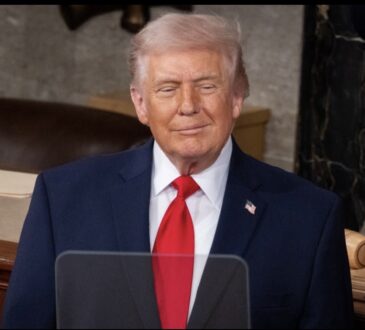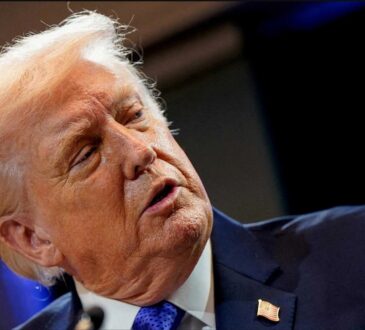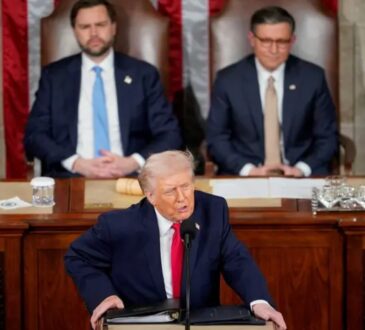We Have Nothing to Hide: Trump Urges House Republicans to Release Epstein Files and “End the Hoax”

President Donald Trump has suddenly changed his position and is now telling House Republicans to vote in favor of releasing the Jeffrey Epstein files. This is surprising because he had strongly opposed the idea before. But as more Republicans in his own party came out in support of releasing the documents, Trump reversed course.
Late Sunday night, after flying back to Washington from a weekend in Florida, Trump posted on social media saying Republicans should vote to release the files. He wrote that he has “nothing to hide” and claimed the whole issue was a “Democrat hoax” created by “Radical Left Lunatics” to distract people from the Republican Party’s successes.
Trump’s shift happened after a bitter internal fight among Republicans. One of the biggest clashes was between Trump and Georgia Rep. Marjorie Taylor Greene, who used to be one of his strongest supporters but is now publicly at odds with him over this issue.
Trump’s decision to back off is a quiet admission that supporters of the bill have enough votes to pass it in the House. What happens in the Senate, however, is still unclear.
It is rare to see Trump step back because of pressure from inside his own party. Since returning to the presidency, he has held a very strong grip on the GOP. This time, though, he is facing a wave of Republicans who want the Epstein documents out in the open.
In his post, Trump insisted that he doesn’t care about the issue anymore. He said the only thing he cares about is Republicans “getting back on point.” But lawmakers pushing the bill say they expect a major victory in the House, with a huge number of Republicans prepared to vote for it—going against both GOP leadership and Trump.
Before changing his mind, Trump had even personally contacted two Republicans who signed the bill. One of them was Rep. Lauren Boebert of Colorado, who visited the White House Situation Room last week to talk about it with administration officials.
The bill requires the Justice Department to release every file and communication connected to Jeffrey Epstein, including anything related to his death in federal prison. Sensitive information about victims or active investigations can be blacked out, but the rest must be made public.
Rep. Thomas Massie, a Republican from Kentucky, said he believes over 100 Republicans might vote for the bill. He said he hopes there will be enough votes to override a possible veto from Trump if that ever happens.
Massie and Democratic Rep. Ro Khanna created a “discharge petition” in July to force a vote on the bill. This is a rare move that allows regular members of Congress to bypass the Speaker of the House and demand a vote directly. It almost never succeeds, but this time it did—after Rep. Adelita Grijalva became the 218th signer moments after she was sworn into office last week.
Massie said that Speaker Mike Johnson, Trump, and any Republican who has been fighting the bill are about to suffer a major defeat. He said the momentum is too strong to stop.
Johnson has now accepted that the vote is happening and said the House will simply “get this done.” He said there is “nothing to hide” and tried to downplay the discharge petition by saying his Oversight Committee has already released even more information than the petition would require.
The vote is happening at the same time that new documents have just come out, raising fresh questions about Epstein and his connections. One 2019 email written by Epstein claimed that Trump “knew about the girls.” The White House is accusing Democrats of leaking this email on purpose to damage Trump politically.
Speaker Johnson defended Trump, saying he has nothing to hide and that Democrats are trying to use the files to attack him unfairly. Trump’s name has appeared in previously released government records, but he has never been accused of wrongdoing related to Epstein. Epstein socialized with many famous people—politicians, celebrities, and business leaders—so being mentioned in records does not automatically mean guilt.
Khanna, the Democrat co-leading the bill, said he is not expecting as many Republican votes as Massie predicts. But he hopes at least 40 Republicans will support the effort. He added that he doesn’t even know how deeply Trump was involved with Epstein, but said many other powerful people need to be held responsible.
Khanna also invited Trump to meet with Epstein’s survivors, who will be at the Capitol for a news conference on Tuesday.
Massie warned that any Republican who votes against releasing the files because they fear losing Trump’s support will have to live with the consequences. He said the vote will be remembered long after Trump leaves office.
Inside the GOP, the push for transparency has created new fractures. Greene, Boebert, and Nancy Mace joined Massie in signing the petition, putting them directly at odds with Trump. Trump recently announced that he is ending his political friendship with Greene and even threatened to endorse someone against her in the next election.
Greene said she believes the public deserves to know the truth and that she is confused by Trump’s anger because many women she spoke to said Trump did nothing wrong. She said she doesn’t know what is in the files, but she cannot understand why Trump is fighting their release so aggressively.
Trump escalated the feud on Sunday, posting online from his helicopter that “nobody cares about this Traitor to our Country!” referring to Greene.
Even if the bill passes in the House, there is no guarantee that Senate Republicans will support it. Massie said he hopes Senate Majority Leader John Thune will “do the right thing.” He also believes that if the House vote shows a massive number of Republicans supporting transparency, it will force the Senate to consider the bill more seriously.
The lawmakers pushing the bill appeared on several major news shows over the weekend, explaining why they believe the Epstein files must be released now and why the public deserves answers.




